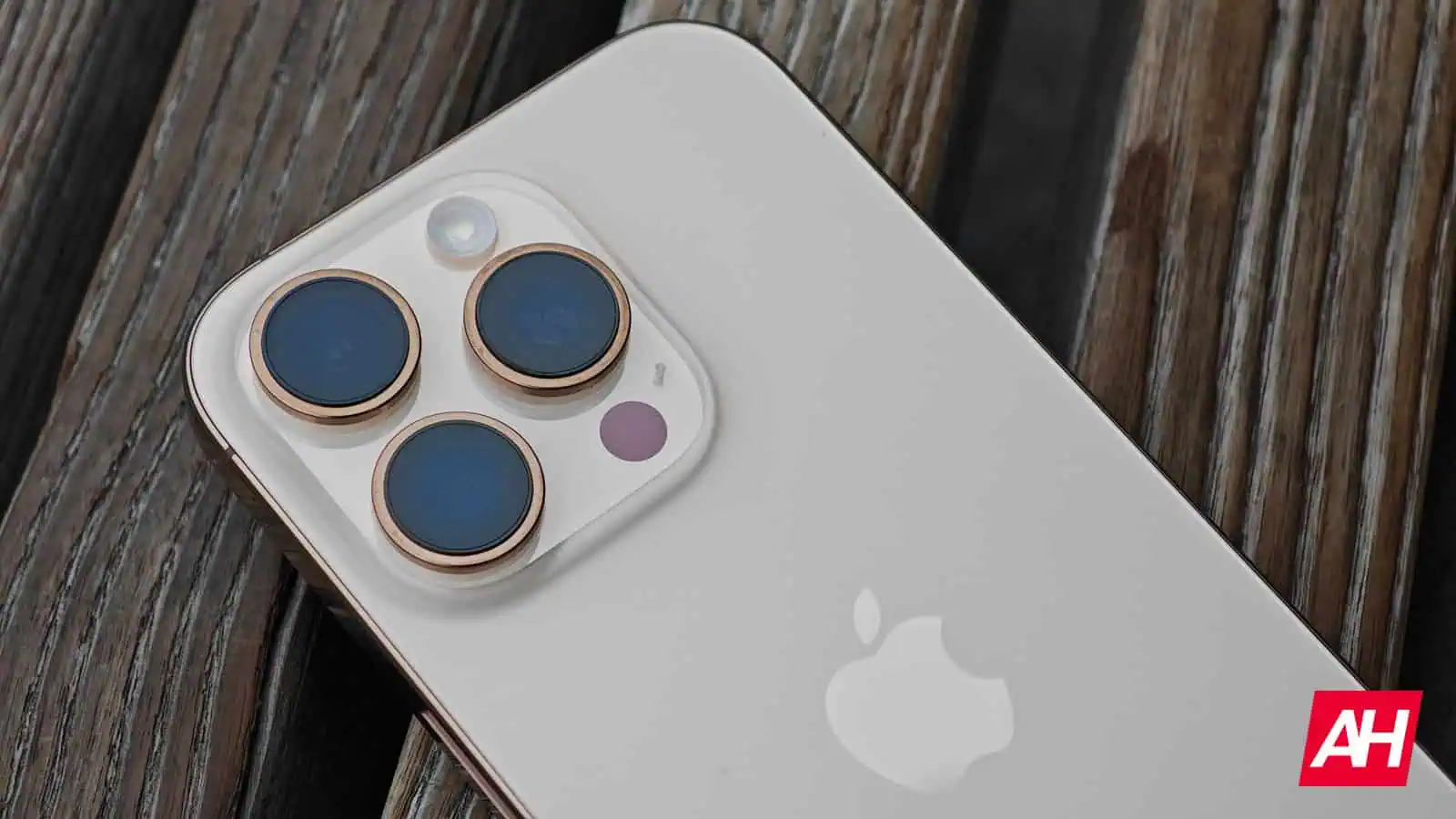In this article, we’ll be comparing two of the newest compact smartphones Apple has to offer. It’ll be a comparison between the Apple iPhone 16 Pro vs Apple iPhone 16. Many people are saying that the iPhone 16 is the better buy this year, and that may as well be the case. It’s considerably more affordable, and it has a lot to offer. We’ll pit it against the ‘Pro’ model to see what’s what.
As per usual, we’ll first list their specifications and will take it from there. Following that, we’ll compare their designs, displays, performance, battery life, cameras, and audio output. Apple opted for displays of a different size this time around, unlike previous years. So the two phones are more different than usual, at least in that regard. With that being said, let’s get down to business, shall we?
Specs
Apple iPhone 16 Pro vs Apple iPhone 16, respectively
– Screen size:
6.3-inch LTPO Super Retina XDR OLED ( flat, 120Hz, HDR, 2,000 nits max brightness)
6.1-inch Super Retina XDR OLED ( flat, 60Hz, HDR, 2,000 nits)
– Display resolution:
2622 x 1206
2556 x 1179
– SoC:
Apple A18 Pro (3nm)
Apple A18
– RAM:
8GB
– Storage:
128GB/256GB/512GB/1TB (NVMe)
– Rear cameras:
48MP (wide, f/1.8 aperture, 1/1.28-inch sensor, 1.22um pixel size, sensor-shift OIS), 48MP (ultrawide, f/2.2 aperture, 0.7um pixel size, PDAF), 12MP (periscope telephoto, f/2.8 aperture, 1/3.06-inch sensor, 1.12um pixel size, 3D sensor-shift OIS, 5x optical zoom)
48MP (wide, f/1.6 aperture, 1/1.56-inch sensor, 1.0um pixel size, sensor-shift OIS), 12MP (ultrawide, f/2.2 aperture, 120-degree FoV, 0.7um pixel size, PDAF)
– Front cameras:
12MP (f/1.9 aperture, PDAF, 1/3.6-inch sensor size, OIS)
12MP (f/1.9 aperture, PDAF, 1/3.6-inch sensor size)
– Battery:
3,582mAh
3,561mAh
– Charging:
38W wired, 25W MagSafe wireless, 15W Qi2 wireless, 7.5W Qi wireless, 5W reverse wired
30W wired, 25W MagSafe wireless, 15W Qi2 wireless, 7.5W Qi wireless & 4.5W reverse wired charging
– Dimensions:
149.6 x 71.5 x 8.3 mm
147.6 x 71.6 x 7.8 mm
– Weight:
199 grams
170 grams
– Connectivity:
5G, LTE, NFC, Wi-Fi, USB Type-C, Bluetooth 5.3
– Security:
Face ID (3D facial scanning)
– OS:
iOS 18
– Price:
$999+
$799+
– Buy:
Apple iPhone 16 Pro (Amazon)
Apple iPhone 16 (Amazon)
Apple iPhone 16 Pro vs Apple iPhone 16: Design
The iPhone 16 Pro is made out of titanium and glass, but there’s also some aluminum in the mix. The frame on the iPhone 16 is made out of aluminum, which is combined with glass. As far as the general shape is concerned, they’re very similar. They have flat front and back sides, while their frames are also flat all around. Even the corner curvature is the same on the two smartphones.
There is a pill-shaped cutout on the front of both phones, and their bezels are uniform. Those display bezels are thinner on the iPhone 16 Pro, though, as expected. The power/lock button sits on the right-hand side of both phones, along with a Camera Control button. The volume up and down keys are located on the left, along with an Action Button. So they basically have identical buttons and similar placements of those keys.
You’ll notice different-looking camera islands on the back, though. The iPhone 16 Pro includes a squarish camera island with three cameras on the inside. A pill-shaped one is included on the iPhone 16, with two cameras on the inside. Both of them sit in the same spot, though, the top-left corner on the back. The iPhone 16 Pro is a bit taller than the iPhone 16, and a bit thicker. They’re almost the same in terms of width. Do note that the iPhone 16 Pro does have a slightly larger display, though.
The ‘Pro’ model is also a bit heavier, by 29 grams. Yes, you will easily feel that difference, the iPhone 16 is notably lighter. Both of them offer an IP68 certification for water and dust resistance.
Apple iPhone 16 Pro vs Apple iPhone 16: Display
The iPhone 16 Pro features a 6.3-inch 2622 x 1206 LTPO Super Retina XDR OLED display. That panel is flat, and it offers an adaptive refresh rate (1-120Hz). HDR10 content is supported, and the same goes for Dolby Vision. This display’s brightness goes up to 2,000 nits. The screen-to-body ratio is around 90%, while the display aspect ratio is 19.5:9. The Ceramic Shield glass is used to protect this phone’s display.

The iPhone 16, on the flip side, has a 6.1-inch 2556 x 1179 Super Retina XDR OLED display. That display is flat, and it supports HDR10 content and Dolby Vision. This display has a 60Hz refresh rate, so it doesn’t offer a high refresh rate. The maximum brightness here is 2,000 nits too. The screen-to-body ratio is at around 86%, while the display aspect ratio is 19.5:9. The Ceramic Shield glass is protecting this display too, the latest version, same as on the ‘Pro’ model.
Both of these displays are really good in terms of image quality. They’re sharp, vivid, and have great viewing angles. They’re also quite responsive to the touch. The thing is, the ‘Pro’ model does have the advantage of having a high refresh rate display. If you’re used to it, you’ll definitely notice the difference. Both displays do get plenty bright for outdoor use, so no worries there, even though these are not the brightest panels out there.
Apple iPhone 16 Pro vs Apple iPhone 16: Performance
The Apple A18 Pro SoC fuels the iPhone 16 Pro handset. That is Apple’s most powerful chip, and it’s paired with 8GB of RAM here, and NVMe flash storage. The iPhone 16, on the other hand, is fueled by the Apple A18 processor, and paired with 8GB of RAM and NVMe flash storage. Both of those processors are 3nm chips, and the latest mobile chips Apple has to offer for its smartphones.
Both of these smartphones offer great performance. You won’t notice the difference between them during day-to-day use at all. Well, unless you notice the display refresh rate, that is. They are both very snappy and can handle anything you throw at them. You can easily browse, message, email, edit images and videos, and so on. Everything is as fluid as you’d expect it to be considering these are the latest and greatest offerings from the company.
The same can actually be said for gaming. Even though the iPhone 16 Pro is technically the more powerful smartphone, that’s not something you’d notice in gaming, to be quite honest. Both of these smartphones do a great job when gaming is concerned, you can basically run any game out there with ease. They do get warm while you’re playing games, but neither phone gets too hot to handle or anything of the sort.
Apple iPhone 16 Pro vs Apple iPhone 16: Battery
A 3,582mAh battery sits inside the iPhone 16 Pro. The iPhone 16, on the other hand, has a 3,561mAh battery included. The iPhone 16 does have a slightly smaller battery, well, barely smaller, but it has a smaller display too, and a lower display refresh rate. By all accounts, the iPhone 16 should end up offering better battery life in comparison. And that is the case, though the difference is not that big, in all honesty.
Both of these smartphones offer great display battery life. The vast majority of you will be able to get through the day on a single charge, with ease. Getting up to 7 hours of screen-on-time is possible, though it will all depend on your usage, signal, and so on, of course. We’ve been able to cross that mark and keep going on a number of occasions, without a problem. As soon as you throw some gaming in there, or some other graphically-intensive tasks, however, things do change a bit. Either way, both smartphones do a great job in terms of battery life. The iPhone 16 in particular is noticeably better than its predecessor in that regard.
In regards to charging, the iPhone 16 Pro supports 38W wired, 25W MagSafe wireless, 15W Qi2 wireless, 7.5W Qi wireless, and 4.5W reverse wired charging. Something similar can be said for the iPhone 16, actually. Its wired charging will be a tad slower, but everything else is the same. Do note that neither of these two smartphones ships with a charger in the retail box, however. You’ll need to get one yourself if you don’t already own one.
Apple iPhone 16 Pro vs Apple iPhone 16: Cameras
There are three cameras included on the back of the ‘Pro’ model and two on the back of the iPhone 16. The iPhone 16 Pro includes a 48-megapixel main camera (1/1.28-inch sensor), a 48-megapixel ultrawide camera, and a 12-megapixel periscope telephoto unit (1/3.06-inch sensor, 5x optical zoom). The iPhone 16 has a 48-megapixel main camera (1/1.56-inch sensor), and a 12-megapixel ultrawide unit.

Now, the ‘Pro’ model does have better main and ultrawide cameras, in terms of hardware, and it’s the only one of the two that offers a telephoto unit. Yes, the images it provides are better, but not as much as you’d think. They offer a similar style when it comes to photos, and the images do look rather similar. You can notice the difference if you’re pixel peeping, and in low light shots too, but in general, the iPhone 16 does a great job of keeping up with the iPhone 16 Pro.
The same can be said for the ultrawide shots, actually, but not for telephoto ones. The iPhone 16 can utilize 2x or 3x zoom while keeping somewhat good image quality, but everything past that is not that great. The iPhone 16 Pro offers much better zoomed-in shots, that’s for sure. The video recording is really good on both phones, though the ‘Pro’ model does easily win in low light. Yes, the ‘Pro’ model has better camera performance, but the iPhone 16 will do the trick for most people.
Audio
You will find a set of stereo speakers on both of these smartphones. The ones on the iPhone 16 are actually a bit louder, believe it or not. The sound quality coming from both smartphones is really good, though.
There is no audio jack to speak of here, but you can utilize their Type-C ports if you’d like to hook up your wired headphones. Both smartphones also offer Bluetooth 5.3, if you want to use wireless audio instead.







